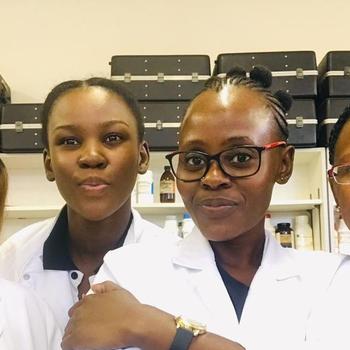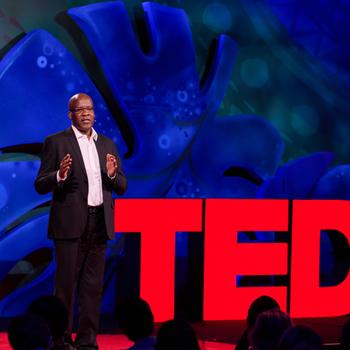While you’re considering what New Year’s resolutions to make, think about having some goals that are good for you and the environment.
In our Climate Lab video series — produced by the University of California in partnership with Vox Media — we explore major themes in our quest to achieve zero carbon impact and ways everyday people can play a role in getting there.
Here are five ways to start tackling climate change today.
1. Reduce food waste.
Roughly 40 percent of the food we produce in the United States never gets eaten. All this food waste doesn’t just mean wasted dollars. It’s a huge burden to the environment. If global food waste were a country, it would be the third largest emitter of greenhouse gases – behind China and the United States – because growing, packaging, shipping and storing wasted food takes a lot of energy. Then it starts to rot, creating more gas. At the same time, one in eight Americans still doesn’t have a steady supply of food. This can change. Simply changing the size of your plate, using a smaller refrigerator and planning your meals can make a huge difference in changing your behavior when it comes to wasted food. That won’t only help the planet. It’ll help your pocketbook. Watch this Climate Lab video to learn more.
2. Tweak your diet.
Our food system contributes to nearly a quarter of all greenhouse gas emissions. That’s 10 percent more than all cars, trucks, planes and trains combined. Just by making a few small tweaks in our diets, we can make a massive impact to reduce global warming. Keep these quick facts in mind: a 6-oz serving of beef emits about 330 grams of carbon. Chicken emits only 50-60 grams. Fish emit just 40 grams and veggies emit just 14. You don’t have to give up red meat entirely, but think about switching to a diet with less beef and more vegetables and fish. The earth and your doctor will be happier for it. Check out this Climate Lab video to learn more.
3. Reduce, reuse, recycle.
You’ve heard it before but are you really doing it? Lauren Singer, a New York City resident, did this in a big way – and managed to fit four years of the trash she produced in a single mason jar. Lauren may be an ideal to which many of us can only aspire, but why not try to aspire to do better where we can? The changes we make can add up to huge reductions in greenhouse gases. Check out this Climate Lab video and get inspired by Lauren’s incredible commitment to wasting less.
4. Skip the overnight shipping.
With eight out of 10 Americans shopping online, companies and consumers can both make better choices to reduce the impact on the earth. You don’t have to stop shopping online. In fact, shopping online generally has a smaller carbon footprint than driving to the store. But before you select the fastest delivery option, consider whether you need that laundry detergent or new sweater in two days. Also, avoid the temptation to try on clothes and return them online. These small changes stack up, resulting in fewer trucks on the road and reducing greenhouse gas emissions. Watch this Climate Lab video to learn more.
5. End e-Waste.
On average, we replace our phones every two years. Gwendolyn Gay of iFixit gives us another option: fixing our phones ourselves. Through video tutorials, Gwendolyn offers step-by-step instructions on how to fix common problems with popular smartphones and other electronics. This work can reduce toxic waste in landfills from electronics. When a device needs to be replaced, be sure to eCycle. According to the Environmental Protection Agency, for every 1 million smart phones recycled, 35,274 pounds of copper, 772 pounds of silver, 75 pounds of gold and 33 pounds of palladium can be recovered and reused. Learn more by watching this Climate Lab video.
Morgan Lynch is a staff writer for Conservation International. Want to read more stories like this? Sign up for email updates. Also, please consider supporting our critical work.



